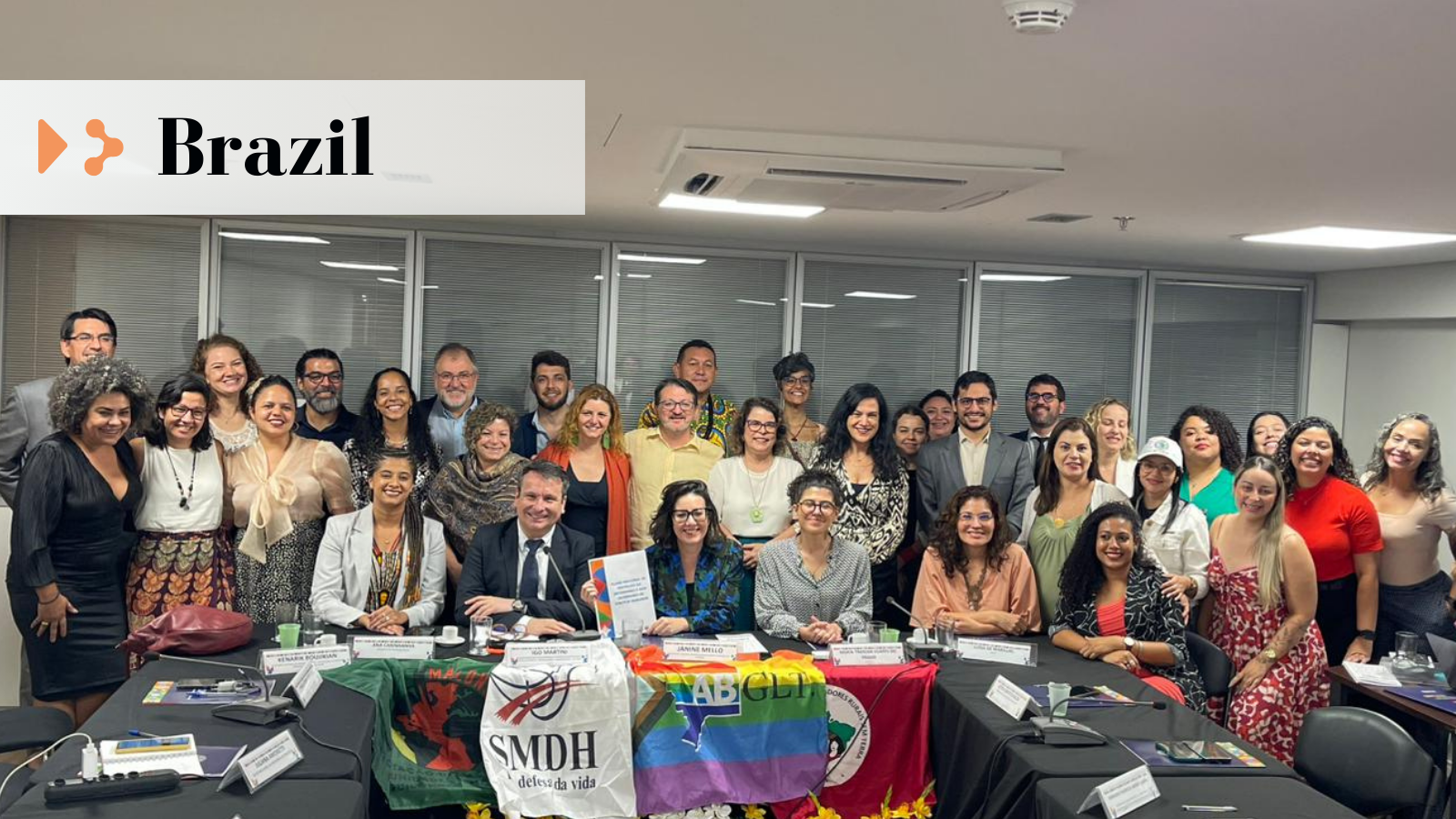






Rio de Janeiro, Brazil. December 16, 2024. – After a year of work, the Sales Pimenta Technical Working Group (GTT Sales Pimenta) presented a proposal for a National Protection Plan for Human Rights Defenders, which incorporates some of the non-repetition measures ordered by the Inter-American Court of Human Rights (IACHR) in the case Gabriel Sales Pimenta v. Brazil. This plan aims to guide public policies to ensure the right to defend rights in Brazil, to comprehensively protect human rights defenders (HRDs) both individually and collectively, and to confront the structural impunity related to the violence suffered by defenders.
The National Plan proposal is organized into three areas: state protection, popular protection and access to rights, and combating impunity. These areas bring together the proposals presented during the public consultation process conducted by the GTT Sales Pimenta. These proposals are organized into strategic objectives, which, in turn, detail the programmatic actions to develop these objectives.
The creation of this National Plan proposal was a collaborative effort by the GTT, which included over 40 listening activities with different civil society organizations and social movements. During these meetings and activities, participants provided valuable information on the situation of HRDs in various regions and contexts of the country, and helped identify topics that should be included in the Plan. Among these contributions, we highlight the participation of the Gabriel Sales Pimenta Institute, created by his family to continue his fight. As a result, the GTT was able to develop a proposal that was submitted to the Minister of Human Rights and Citizenship.
Brazil is the second country in the world with the highest number of HRD killings, with violence particularly targeting defenders of land, territory, and the environment, reflecting the structural racism in Brazilian society. According to the United Nations Office of the High Commissioner for Human Rights (OHCHR), at least 30 cases of attacks against HRDs were recorded in the last four months of 2023, of which 10 were killings. In a country where more and more human rights defenders are threatened and murdered, it is a priority to undertake national and international actions to change this reality.
“The outcomes from a year of work by the GTT Sales Pimenta can be key tools for ensuring the right to defend rights in Brazil and should be transformed into legal instruments with the utmost priority by the State. However, the great legacy of this year’s work was the community that was consolidated through the public consultations and the discussion of the public policies necessary for the comprehensive protection of defenders in Brazil,” said Helena Rocha, Co-Director of the Brazil and Southern Cone Program.
The GTT Sales Pimenta is a collective composed of 10 civil society organizations and 10 representatives of the Federal Government. CEJIL and the Pastoral Land Commission (CPT), petitioners in the international litigation, participated as permanent observers. The GTT was created by the President of the Republic in response to two judicial rulings, one at the national level and the other by the IACHR in the case of the murder of defender Gabriel Sales Pimenta, with the goal of drafting a proposal for a National Plan and a Draft Law to regulate the national protection policy for human rights defenders.
Thus, in addition to working on the plan proposal, the GTT Sales Pimenta also developed a draft law proposal, which will be submitted to the National Congress to create a national protection policy for human rights defenders. The legislative proposal establishes as instruments of the national policy a national system, the plan, and the protection program, which would have legal provisions in accordance with the international ruling.
Both the draft law proposal and the plan also include another reparative measure determined by the IACHR, which is the creation of a national information system on violations of defenders’ rights, with data on the response of institutions responsible for their protection. Finally, the plan proposal also calls for the creation of an investigation protocol for crimes against defenders, responding to the IACHR’s ruling in the case Sales Pimenta v. Brazil.
Gabriel Sales Pimenta: A Defender of the Struggle for Land Rights
Gabriel Sales Pimenta was a lawyer from Minas Gerais who worked for the Marabá Rural Workers’ Union (in the state of Pará). His work defending rural workers was crucial, and he became the first lawyer in Marabá to have a temporary eviction order overturned that allowed the expulsion of land occupants from an area claimed by landowners.
In the late 1980s, as retaliation for his work, Sales Pimenta began receiving threats. Despite reporting these reprisals, on July 18, 1982, he was murdered on the street. Witnesses to the crime helped identify some of the perpetrators, but there was never justice. The State acted in collusion with the criminals, sometimes excessively delaying necessary actions for the proper course of the trial, and other times acting in a biased manner.
Litigated by CEJIL and the Pastoral Land Commission (CPT) on behalf of the Sales Pimenta family, which has been fighting for justice for 40 years, the case reached the IACHR, which issued its ruling in November 2022. In its decision, the Court found that Brazil was responsible for the absolute impunity regarding the murder of Sales Pimenta. It also recognized the existence of a context of violence against human rights defenders in Brazil, particularly environmentalists and defenders of land rights, as well as structural impunity for such crimes.
Help us continue this critical and urgent work with a donation!
DONATE NOW